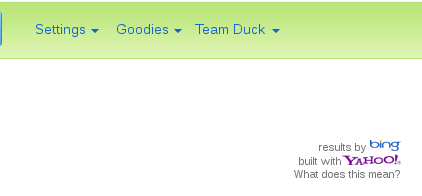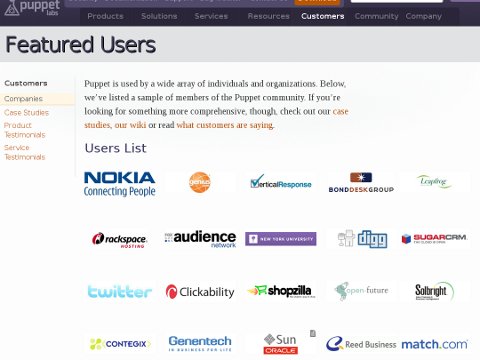11.29.11
Posted in Site News at 7:28 pm by Guest Editorial Team
-
-
Defence/Police/Aggression
-
-
The violent police assaults across the US are no coincidence. Occupy has touched the third rail of our political class’s venality.
-
-
-
Environment/Energy/Wildlife
-
Finance
-
Anti-Trust
-
Public Knowledge’s Gigi Sohn, who has opposed the merger from the start, said today in a statement that “the chances that AT&T will take over T-Mobile are almost gone…. AT&T’s move will, for the moment, prevent the FCC from making public its many, well-documented findings that the deal is not in the public interest and will prevent the judge overseeing the antitrust lawsuit from seeing the FCC’s conclusions.
-
PR/AstroTurf/Lobbying
-
Censorship
-
Civil Rights
-
“Chemical” Linda Katehi, whose crackdown on peaceful university students shocked America, played a role in allowing Greece security forces to raid university campuses for the first time since the junta was overthrown in 1974. … The real problem, from the real powers behind the scenes (banksters and the EU), was how to get Greece under control as the austerity-screws tightened. … that meant taking away the universities’ “amnesty” protection, in place for nearly four decades, so that no one, nowhere, would be safe from police truncheons, gas, or bullets.
-
Internet/Net Neutrality
-
our analysis shows that if net neutrality were abolished, ISPs actually have less incentive to expand infrastructure. … placing a price on prioritizing content creates an inherent disincentive to expand infrastructure. ISPs would profit from a congested Internet in which some content providers will be more than willing to pay an additional fee for faster delivery to users. Content providers like the New York Times and Google would have little choice but to fork it over to get their information to end users. But end users would be unlikely to see the promised upgrades in speed. Those are some of the results of research we conducted on the Internet market.
-
-
-
DRM
-
Intellectual Monopolies
-
In a recent phone interview with AlterNet, [Harriet] Washington discussed the dark implications of corporate medical patents, how we find ourselves in this nightmarish scenario and what needs to be done to stop medical research profits from trumping human health.
-
This is the first time that the EU’s antitrust chief has publicly voiced his concerns over patent wars in the mobile telephony sector.
Both the article and the antitrust chief use the confusing term “IP” and both treat Apple and Samsung as equal abusers of patents but it is good to see the issue addressed.
-
Copyrights
-
In the name of private copy levy, we are deprived of the right to copy! Such negation of the rights of the public is coherent with Nicolas Sarkozy’s policies aimed at turning copyright into a repressive weapon against cultural practices in the hands of industrial lobbies.
Permalink
 Send this to a friend
Send this to a friend
Posted in Microsoft, Search at 3:50 pm by Dr. Roy Schestowitz

Summary: DuckDuckGo and Yahoo! as search engines lead to Microsoft and provide watered down results for FOSS subjects
THERE is reason to be concerned about Microsoft turning Yahoo! Into a purple (ish) Microsoft front end.
There is a reason to be suspicious of DuckDuckGo as well. A closer look helps us understand that when Microsoft killed Yahoo! it basically eliminated another competitor — a malicious move which hurts the industry as a whole (destroying jobs, hurting customers, and so on). “DuckDuckGo needs to wash its hands of Bing,” wrote one of our readers earlier this evening. A recent article outlining how DuckDuckGo (DDG) gives Microsoft-generated (read: censored) results much of the time gave more room for discomfort and we are now seeing Microsoft play more anticompetitive games in search. Some months ago I was shown by a friend how his Windows/IE combination could not retain the choice of Google as a default search engine. He just couldn’t get it to work, so instead he was channelled into Microsoft and its front ends every time he started the Web browser. Design flaw? Surely not, it was clearly deliberate. According to another new testimonial, this is a widespread problem. To quote: “I recently had to install windows on a computer. This involved all the updates and bells and whistles. One of those is what some love to call internet exploder  When starting up internet explorer for the first time it asks you to go through some hoops to set up some settings. If you were to just accept the default settings then you would be using all microsoft search engines. Naturally I did not want to use bling so I decided to choose a custom setting. I wanted Google to be my default search provider.
When starting up internet explorer for the first time it asks you to go through some hoops to set up some settings. If you were to just accept the default settings then you would be using all microsoft search engines. Naturally I did not want to use bling so I decided to choose a custom setting. I wanted Google to be my default search provider.
“I was a bit miffed that there was not a choice for Google right there. Instead I had to wait until all the settings were configured and microsoft opens up a page for me to choose the search provider I wanted. It would have been much easier if I could choose it right there. I could live with it though so I finished all the setting up of internet explorer and waited for it to open up the page so I could choose the Google search provider.
“Lo and behold the page opened up and right there in front of my eyes were a stack of icons of different search providers. The second one, with the Google colors and the Google ‘g’ and the name of Google.com seemed to me to be a good bet that this was the Google search provider I was wanting. I looked at all the other search providers and there was no other Google search provider listed. So it must be that one right? Wrong! Here is the page pointed to by the microsoft internet explorer setup program.”
Somebody ought to investigate this. Microsoft used tricks like these before and was forced off them. While the Microsoft boosters spin hard to pretend Microsoft honours competition, the company is just the same psychopath is has always been. Apathy towards Microsoft is a recipe for trouble, not peaceful coexistence. █
Permalink
 Send this to a friend
Send this to a friend
Posted in Novell, OpenSUSE, SLES/SLED at 3:39 pm by Dr. Roy Schestowitz
From leader to loser in 5 years?

Summary: Why SUSE should be avoided, not just for helping Microsoft but also for technical reasons
FIVE years ago SUSE could almost be viewed as a victim of Novell’s decisions. But a few months ago SUSE sold out not via Novell and this is when we called for a boycott of SUSE and not Novell (which no longer existed per se).
Now that the Weekly News posts seem quite vacant (compared to years ago) we are left just seeing some OpenSUSE posts like impressions and various reviews. The score for OpenSUSE is not so high, so it is clearly not a leader. It arguably was the leader before Microsoft turned it into a ‘Microsoft Linux’. As one review summarised it: “I would say that it’s still a good distribution, but it’s not quite as awesome as version 11.4, so I would recommend it, but not as much as version 11.4.”
So it is arguably getting worse. People who speak about DistroWatch rankings for OpenSUSE conceal the fact that the recent release provides a temporary boost.█
Permalink
 Send this to a friend
Send this to a friend
Posted in Europe, Patents at 3:29 pm by Dr. Roy Schestowitz

Summary: Secretly and without honour for the rule of law, politicians and lawyers (sometimes the same thing) are bringing software patents into Europe, via the back door
NOW that Linux/Android devices come under embargo attacks by the ‘patents army’ in Germany, we must take the patent question very seriously. In Germany we are told that the Green Party (not the Pirate Party which takes funds from software patents supporters) is taking action against software patents.
Germany has a lot of impact over the EPO and via Glyn Moody we discover that “Coming To Plates In Europe [are] Patented Vegetables, Produced By Conventional Breeding” — the same thing that Germans protested against in the streets some years ago. “The European Patent Organization (EPO) is a strange entity. Despite its name,” explains Masnick, “it has nothing to do with the European Union. Instead, it was set up on the basis of the 1973 European Patent Convention to grant patents under that Convention.
“But things are getting worse as British patent lawyers quietly try to overhaul the patent the system in Europe, tilting it further in their advantage.”“As an independent body whose only reason for existing is to oversee the issue of patents, it has a natural tendency to widen their reach. One of the most hotly-contested areas where that is happening is software patents, which are not granted in Europe “as such” (you can imagine what fun the lawyers have with those two words).”
But things are getting worse as British patent lawyers quietly try to overhaul the patent the system in Europe, tilting it further in their advantage. The only article we have found about it says:
An Anglo-German tug of war is developing over the site of a new European patents court that could generate hundreds of millions of pounds of business for UK lawyers and scientists.
The Chartered Institute of Patent Attorneys (Cipa) has written to the prime minister and will on Tuesday lobby the government’s intellectual property office for the European patents court to be established in London.
Germany has proposed that Munich, where the EU’s patent office is already located, should become home to the court that will adjudicate in disputes over ownership of industrial designs and inventions.
Glyn Moody, who recently mentioned Lehne (politicians who at the same time serves a lawyers’ firm, mushrooming a conflict of interest), also wrote about the latest patent scandal:
It’s those last points that are particularly worrying. The European Patent Office has nothing to do with the European Union, and is essentially a completely independent body. Worse, it’s entire raison d’être is to issue patents, and so it is only natural that it will want to issue more of them, and in more fields. Its rulings have already pushed software patents closer to acceptance, and there can be little doubt that the unitary patent will make software patents the norm throughout Europe.
This is a disaster waiting to happen, and already we are seeing the political machine swing into action to make sure that it does happen. That such an important change in the European patent system should be decided by a few people behind closed doors is an utter outrage, and symptomatic of the deeply dysfunctional approach that is routinely adopted.
The only way we can hope to change this culture is by protesting about it whenever we encounter it until the politicians realise that even if we can’t see what they are doing in secret, we do at least know they have something to hide.
This oughn’t escape the attention of the European Commission as not only does the above illustrate democracy fracturing (a form of corruption) but it is also the invitation of more patent wars of greater magnitude. Given that the EU can see the negative effects of patent wars, it musn’t stay idle. To quote: “A funny thing has happened to patent law in the 21st century. Instead of protecting intellectual property rights, patents have been hijacked by rich companies to take control of a market — and the problem is particularly acute in the mobile space.
“Reuters reported last week that the EU is beginning to think companies are using patents unfairly to harass market rivals.”
There is more on that in a new article which says:
In recent times, an increasingly competitive and litigious smartphone industry has spawned a patent arms race, and the need for participants to bulk up their proprietary patent portfolios.
Specifically, an eruption of patent lawsuits has occurred between almost every major developer of smartphone hardware and software in the industry. In many respects, companies are buying insurance against future legal action, injunctions, etc.
Early in 2011, a consortium led by Apple and Microsoft paid an astounding $4.5 billion for more than 6,000 patents owned by the now defunct Nortel Networks.
For anyone without a calculator handy, that equates to roughly $750,000 per Nortel patent. To put the intensity of competition for Nortel’s patents into context, Google opened the bidding at just $900 million (Nortel’s creditors will be happy), and was ultimately shut out completely.
Not to be without a dance partner, Google recently purchased Motorola and its 17,000 patents for $12.5 billion in cash, as well as a thousand or so patents from IBM for an undisclosed sum. This may work to put a lid on the patent race/bidding frenzy in the near term, because Google was really the one driving it.
Mark Shuttleworth said that “The Whole Patent System Is A Sham” (going by the headline from Muktware). To quote: “Mark Shuttleworth, the charismatic founder of Ubuntu, slammed the patent system as broken. He also said that Microsoft’s biggest mistake was to think that they could use patents against competition and wasted most of a decade.”
Ubuntu is based in the UK, so the patent question matters a lot and the EU needs to turn away software patents. Over in the US, we still see new examples of patents on compression, games, and just about everything someone can explain in words. Regarding compression, Canonical already pays a patent tax on it. To quote that latter example: “Full Tilt Poker’s unique “Rush Poker” innovation, which allows a pool of players to play quickly and to continuously be rushed to a new table upon folding their cards at their previous table, is a concept that is neither exclusive nor patentable, according to Per Hildebrand, chairman and vice president of sales at InstaDeal Poker Network.”
Of course this is not novel, but when systems permit any digitised equivalent of real-life processes to become a patent, there’s chaos. This chaos is profitable for lawyers and it hurts small companies the most. █
Permalink
 Send this to a friend
Send this to a friend
Posted in America, Europe, Patents at 3:10 pm by Dr. Roy Schestowitz

Summary: An interlude about what software patents are doing and why they need to be abolished or at least not spread any further
PATENT systems were created to encourage publication, but given that source code can be published or withheld for good, what is the point of software patents when it comes to publication? One site specifically explains how to get them in the US. “I promise myself not to use any Oracle Database, their patent aggression against Dalvik is insane and should be punished,” writes the FFII’s president, who helps find much of the news about patents, especially in Europe. There is always an attempt to extend US patent law to Europe, which would be good for US multinationals and atrocious for European businesses. We shall write about that separably. The Bilski case helped show that the system in the US is quite incapable of ridding itself from software patents and this analysis from a fortnight ago says that:
Internet and entertainment companies should rejoice. The U.S. Court of Appeals for the Federal Circuit fit a square patent peg into a round cyberspace hole. In Ultramercial v. Hulu, the Federal Circuit reversed a decision of the U.S. District Court for the Central District of California and held that a process for monetizing the transmission of data over the web using advertisements does not qualify for the abstract idea exception to patentability. Many legal scholars were concerned that the Supreme Court’s decision in Bilski v. Kappos – upholding the rejection of a business method patent to hedge energy markets because hedging was an abstract idea – would eviscerate business method patents and potentially leave services in cyberspace without patent protections. However, the Federal Circuit’s decision fits service innovations in cyberspace within the business method patent category.
The goal to strive for is elimination of software patents in the United States. Failing that, we must ensure that software patents do not spread to other continents and nations. █
Permalink
 Send this to a friend
Send this to a friend
Posted in America, Patents at 2:58 pm by Dr. Roy Schestowitz

Summary: IEEE fuels some more Microsoft propaganda about patents as the patent system continues to disappoint the majority
AS patent systems become more litigious, the patent trolls find themselves able to sue more and more companies as a matter of routine. Here is one from this past week’s news:
An intellectual property licensing company hit software maker Citrix Systems Inc. with a patent infringement suit in Florida on Monday, claiming the company’s popular GoToMeeting remote meeting software violates several patents for video conferencing technology.
This helps show how software patents get extensively exploited by patent trolls. Statistically, a correlation was also demonstrated. the American IEEE lobbies for software patents [1, 2] and once again helps Microsoft in its usual fashion, this time providing Microsoft with something to brag about. Microsoft writes: “The IEEE #patent scorecards recognize innovation via IP and MSFT continues to hold the #1 position for software bit.ly/uB1EN4″
Software patents and Microsoft are closely related issues. This whole ideas of treating patents like trophies is merely helping monopolies, not innovation. To quote:
Though Digimarc obtained just 66 U.S. patents in 2010 — No. 1 Microsoft had 3,117 — IEEE, a technology trade group, said the volume of patents isn’t as important as their impact, such as how frequently they were cited.
Cited as prior art? This merely shows how silly software patents really are. They are the bringing together of prior ideas and applications of these ideas. Does that merit a monopoly? Going back to the drawing board is essential because the system lost sight of its goals; it is a hen house run by the fox (patent lawyers and their biggest clients).
When Orwellian behaviour analysis becomes a Microsoft patent, then the benefit of patents to society are only further doubted. Apple gets its own Orwellian patent on tracking people, so it is not much better. █
Permalink
 Send this to a friend
Send this to a friend
Posted in Finance, Free/Libre Software at 8:59 am by Dr. Roy Schestowitz

Summary: A short Puppet interview delivered upon the news about a multi-million-dollar investment
Puppet is a Free/open source software tool which is used by many companies. I rely on it heavily at work. As we recently covered the release of a Puppet book we decided to also celebrate the news about Puppet Labs getting more funding. We spoke to Luke about the news and here are his answers.
1. Congratulations on the news, Luke. How long was this under negotiation and who was the initiator?
Luke: The investment was negotiated quite quickly. We had multiple outside investors who were interested in initiating a round, but our existing investors were excited enough about Puppet Labs that they proposed a deal we were happy with before we had talked to more than a couple outside investors.
2. At what capacity does Google use Puppet in-house to the best of your knowledge?
Luke: Google has published that they use Puppet on thousands of hosts in their corporate IT, but they don’t publish specific numbers. Their installation is rare in that it primarily uses Puppet to manage workstations and laptops, as opposed to servers.
3. What will the news mean to existing users of Puppet?
Luke: It means we’ve got the resources to continue focusing on improving our product while we grow our sales and marketing teams, to enable us to bring Puppet to a wider group of users.
“Cisco has not yet gone public as a user of Puppet,” explained to us the PR agent of Puppet Labs, “so we cannot explicitly state that Cisco uses Puppet, but I can give you a bit of background on Puppet and Cisco: Cisco is a great fit for Puppet because the demographic is a nearly-perfect overlap consisting of network admins and sysadmins, and Cisco has a lot of management issues that Puppet can help solve. Cisco is moving into virtualization and knows the Puppet infrastructure very well.”
Here is the press release (November 29th, 2011).
Puppet Labs Raises $8.5M in Series C Funding
Cisco, Google Ventures, and VMware Join Kleiner Perkins, True Ventures, and Radar Partners To Build On Market Success and Accelerate Growth
PORTLAND, OR – NOVEMBER 29, 2011 – Puppet Labs, the leading provider of IT automation software for system administrators, today announced the closing of $8.5 million in Series C financing to further accelerate the company’s already strong growth and customer success. New investors Cisco, Google Ventures and VMware join existing investors Kleiner Perkins Caufield & Byers, True Ventures, and Radar Partners. With the $8.5 million investment, Puppet Labs has now raised a total of $15.75 million.
The funding caps off a pivotal year for the company, which now boasts more than 250 customers including Zynga, Twitter, NYSE, Disney, Citrix, Oracle/Sun, Constant Contact, Match.com, Shopzilla, Los Alamos National Laboratory, and Stanford University. In January, Puppet Labs expanded beyond its open source roots and announced Puppet Enterprise, the first commercial version of Puppet™, the powerful yet easy-to-use IT automation solution for system administrators. In March, the company was chosen by AlwaysOn as one of the “OnDemand Top 100” winners.
In September, Puppet Labs announced Puppet Enterprise 2.0 at its annual user conference, PuppetConf. Puppet Enterprise 2.0, the primary driver of business growth, has opened new markets for Puppet Labs in making the provisioning, configuring, and managing of virtualized and cloud infrastructure dramatically easier for system administrators.
In October, The Wall Street Journal noted that the demand for IT professionals with “Puppet skills” had tripled over the previous 12 months. This year has also seen Puppet Labs’ community grow beyond North America and Europe, with user groups and meet-ups sprouting worldwide, including in China, India, and Japan. Puppet Labs has also continued to grow its partner ecosystem such that it now offers integrations with VMware, Amazon Web Services, Cisco, OpenStack, Eucalyptus, RightScale, Zenoss, to name a few.
“The participation of these new investors in this latest round reinforces our lead in providing powerful IT automation tools for system administrators, whether deploying applications on-premise or in the cloud,” said Luke Kanies, CEO of Puppet Labs. “Together, we are well-positioned to enable IT organizations to fully capitalize on the tectonic shifts of virtualization and cloud computing in their delivery of business results.”
About Puppet Labs
Puppet Labs, Inc. was founded in 2005 and shipped the first release of the open source Puppet Project later the same year. The popularity of Puppet Labs’ IT automation solution has since grown to where it is now responsible for managing millions of nodes across thousands of organizations, both on-premise and in the cloud, including Zynga, Citrix, Shopzilla, Match.com, Oracle/Sun, to name a few. Now numbering sixty employees and based in Portland, Oregon, Puppet Labs is backed by Cisco, Google Ventures, Kleiner Perkins Caufield & Byers, Radar Partners, True Ventures, and VMware.
Permalink
 Send this to a friend
Send this to a friend
« Previous entries Next Page » Next Page »























 Content is available under CC-BY-SA
Content is available under CC-BY-SA